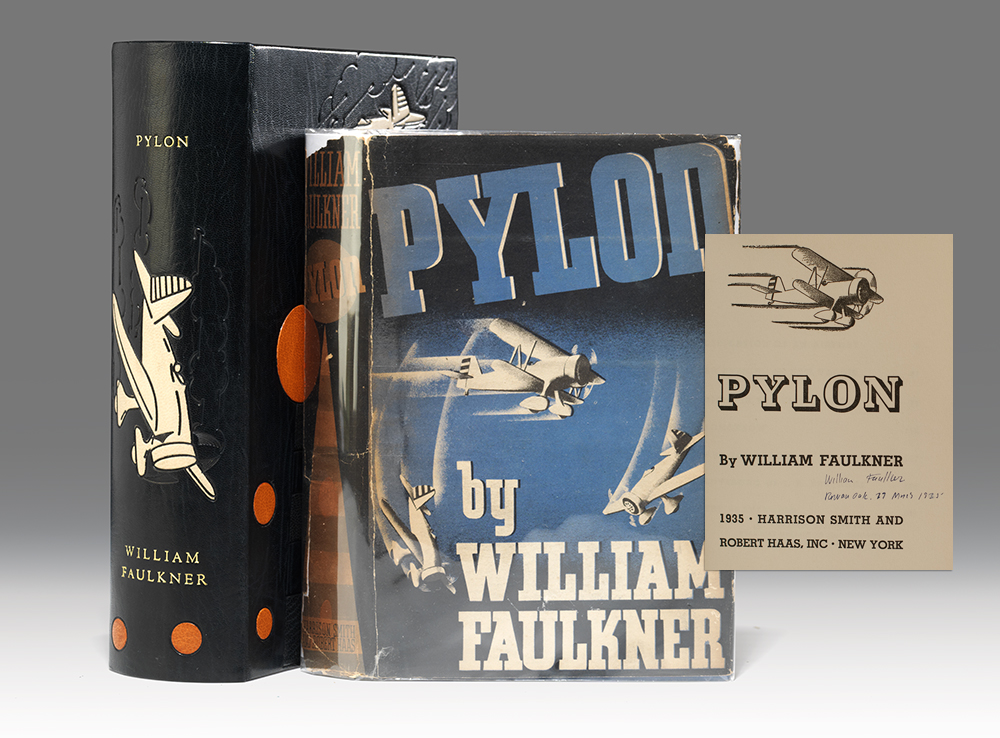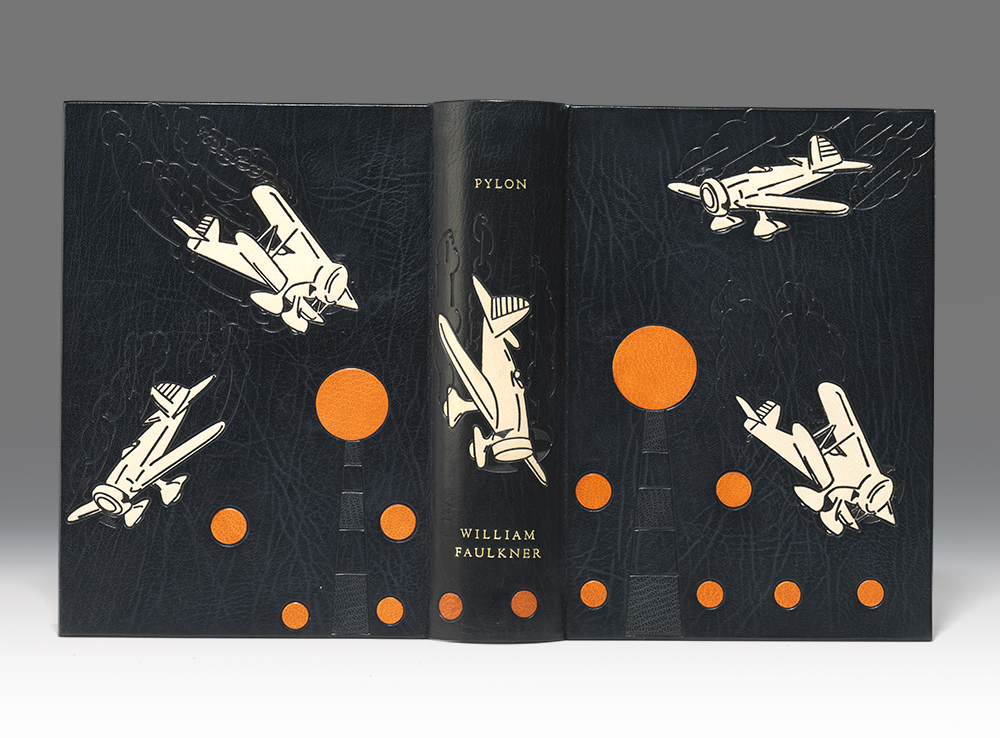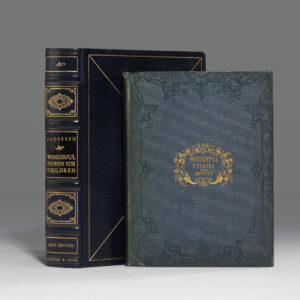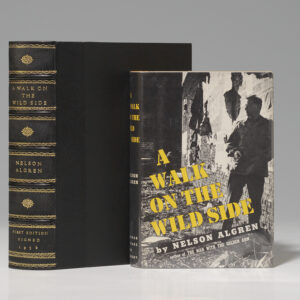Description
PRESENTATION/ASSOCIATION COPY OF FAULKNER’S PYLON TWICE INSCRIBED IN THE YEAR OF PUBLICATION TO WORLD WAR II AVIATION HERO HENRY E. “RED” ERWIN
FAULKNER, William. Pylon. New York: Harrison Smith and Robert Haas, 1935. Octavo, original blue cloth, original dust jacket.
First trade edition, presentation/association copy, inscribed on the front free endpaper to Medal of Honor recipient Henry Erwin and his wife, and additionally inscribed on the title page: “William Faulkner, Rowan Oak, 27 Mais 1935.”
Faulkner’s lifelong fascination with aviation found expression in Pylon, “his homage to those who rejected the ground for almost inevitable death in the air” (Karl 409). Published simultaneously in a signed limited edition. The basis for the 1958 film The Tarnished Angels, directed by Douglas Sirk and starring Rock Hudson, Robert Stack and Dorothy Malone. This copy bears the inscription: “to Mr. & Mrs. Henry P. Erwin,” actually aviator Henry E. “Red” Erwin (Faulkner miswrote his middle initial) and his wife, Betty. Erwin was an Army Air Corp master sergeant who was awarded the Medal of Honor in World War II for extreme heroism that involved picking up a malfunctioning phosphorous bomb with his bare hands and throwing the 1,000 degree bomb out the window of a B-29, saving his fellow crew members while sustaining horrific, permanently disabling burns to most of his body. At the time of his accident, Betty, Erwin’s Sunday school sweetheart, had been married to him for only six months. Erwin was terrified to return to American soil, certain that his wife would leave him upon witnessing the extent of his injuries. However, upon visiting him in the hospital for the first time, Betty simply kissed him and said, “Welcome home.” The couple went on to have four children, including Senator Hank Erwin. After 41 reconstructive surgeries, Henry Erwin went on to help VA burn victims and to become both a cultural icon and aviation hero. His story was turned into the 1951 movie, The Wild Blue Yonder. Faulkner, a World War I pilot who never saw combat much to his regret, most likely gave this aviation-related work to Erwin out of admiration for his fellow Southerner’s bravery.
Interior fine. Toning and light soiling to cloth spine. Toning to spine of otherwise bright unrestored dust jacket, with closed tears along front flap and spine folds. Very good condition. Scarce inscribed and with such a desirable provenance.




